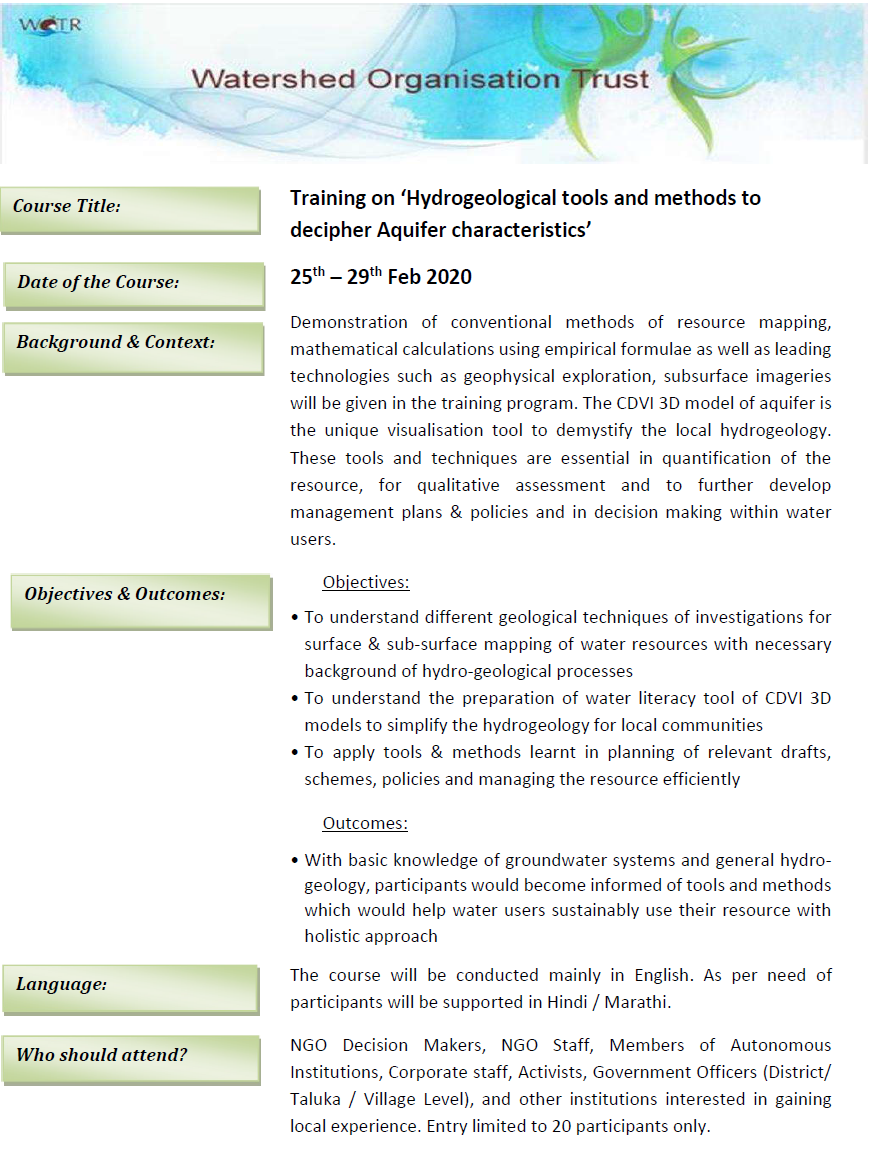/topics/deep-aquifers
Deep Aquifers
Springing back to life
Posted on 20 Apr, 2020 11:45 PMSprings are the key source of water for rural households in Uttarakhand, yet they have seen an overall neglect over the decades with discharge from many springs declining bit by bit. The depletion of aquifers, changes in land use and ecological degradation have led to several initiatives to address springshed management in the state. We speak to Dr.

Decentralised groundwater governance to deal with the groundwater crisis
Posted on 17 Feb, 2020 05:43 PMThe challenges to sustain groundwater dependency in India are many where groundwater over extraction is not only leading to rapid depletion of the resource, but also giving rise to water quality issues in a situation where the response at the level of policy continues to be lukewarm.

Budget 2020: Is the allocation enough to meet the piped water dream
Posted on 09 Feb, 2020 09:25 PMFinance Minister Nirmala Sitharaman’s budget announcement on February 1, 2020 made a push for piped rural drinking water supply and promised full coverage of all households by 2024.

Perils, politics and prospects of groundwater in India
Posted on 05 Feb, 2020 03:15 PMAfter independence, India was largely food insecure but post Green Revolution around the 1970s, foodgrain production increased manifold consequently reducing food insecurity and poverty in the country, in spite of rapid population growth. Its ability to achieve targeted results was largely dependent on the explosion of groundwater abstraction mechanisms like tubewells.

Training on ‘Hydrogeological tools and methods to decipher Aquifer characteristics’
Posted on 23 Jan, 2020 05:13 PM

Karnataka farmers cope as wells fail
Posted on 13 Jan, 2020 07:08 PMLike in many parts of India, Karnataka’s groundwater is a vital source of irrigation water, but has been depleted by a combination of a prolonged, multi-year drought and intensive extraction. Worsening agro-climatic and environmental conditions are threatening the incomes of smallholder farmers and hampering the continued progress in poverty eradication.

Groundwater variability: The tale of two states
Posted on 12 Jan, 2020 09:28 AMIndia, a groundwater stressed country

Nilogon for fluoride removal from groundwater
Posted on 01 Jan, 2020 10:41 AMGroundwater contamination has emerged as an alarming issue in India and a recent UN report reveals that India ranks 120th among the 122 countries in terms of water quality index.

Looking back into history to understand droughts
Posted on 04 Dec, 2019 02:53 PMDroughts in India: types, causes and effects
Droughts are greatly feared in India, impacting food production, the economy and the livelihoods of millions of farmers. 60% of India’s population is engaged in agriculture.

Orientation Training on 'Aquifer Recharge in Rural and Urban areas'
Posted on 20 Nov, 2019 09:30 PMObjective of the event:
To orient participants on innovative borewell recharge method in rural areas as well as various methods of aquifer recharge in urban areas.
Target Participants:




